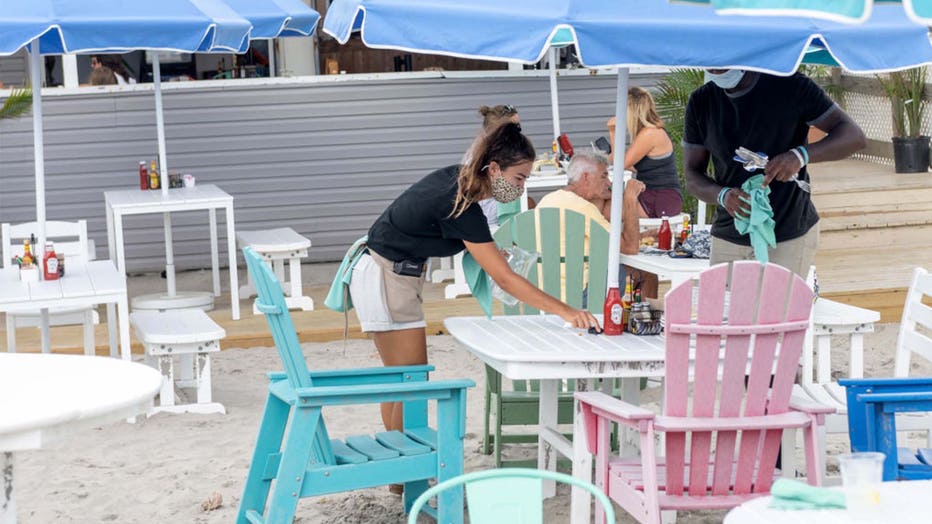Rise in labor trafficking abuse found across many US industries, study says
A recently published exploratory study conducted among United States citizens in the workforce found increased levels of sexual abuse in the workforce than seen in previous research regarding labor trafficking abuse, multiple forms of exploitation across different industries and increased cases of domestic violence among victims of labor trafficking.
The study, which is the first to explore and focus on labor trafficking victimization among U.S. citizens, was conducted by researchers from John Jay College of Criminal Justice, Northeastern University and the University of Massachusetts Lowell.
Labor trafficking is described as the "recruitment, harboring, transportation, provision, or obtaining of a person for labor or services, through the use of force, fraud or coercion for the purpose of subjection to involuntary servitude, peonage, debt bondage or slavery, " according to the exploratory study.
While researchers did not specifically examine the correlation between low numbers of workers going back to their previous jobs due to possible labor trafficking victimization and the COVID-19 pandemic, researchers believe the ongoing pandemic had some impact on workers’ decisions.

FILE - A waitress wearing a mask cleans a table at an outdoor beach restaurant as the state of New Jersey.
RELATED: 21 busted, 10 women and girls rescued in California human trafficking ring
The COVID-19 pandemic forced many people to leave their jobs and find other sources of income. Despite reopenings and a wide range of industries returning to offices, many employees have decided not to return, possibly due to being victims of labor trafficking, researchers posited.
"These findings underscore the need for fair wages and oversight of industries where abuses have been more prevalent," researchers suggested.
The survey collected data from 240 individuals and focused primarily on U.S. citizens as opposed to "foreign-born undocumented or temporary workers in the United States," according to the exploratory study.
Participants who took the survey resided in Anchorage, Alaska, San Diego, Calif., New York City, N.Y. and Boston, Mass.
RELATED: Wedding industry feels coronavirus paper shortage, here’s what couples should know
Researchers found that victims of labor trafficking and labor trafficking victimization often also experienced housing insecurities and were previously incarcerated.
Industries with higher rates of labor trafficking victimization were "construction, food service, retail, or janitorial industries," according to the exploratory study.
Victims "described delays in payment, deception, lies, intimidation, threats, restrictions of physical and communicative freedom, and sexual abuse from their employers," the study continued.
Of the 240 victims who were surveyed, only 69% said they did not report the abuse and of the minority that did seek help, they reached out to those in higher positions such as a manager, supervisor or human resources.
RELATED: Hospitality industry faces worker shortage as restrictions ease
"In most of these cases, respondents were not looking to leave their jobs but instead improve the negative conditions they were experiencing," researchers said.
Very little research has been done on labor trafficking and victimization in the U.S. and authors of the exploratory study emphasized a need for more focused studies on the topic.
"Data from the National Human Trafficking Hotline shows over 5,000 calls have been made about potential cases of labor trafficking since 2007, with most calls concerning the domestic servitude, agriculture, traveling sales crews, restaurant/fast food, and health and beauty service industries," according to the study.
Researchers acknowledge that collecting data on labor trafficking victims among U.S. citizens is very difficult, but believe there are huge numbers of people who are going under the radar due to underreporting or no reporting.
RELATED: Federal vaccination policy for nursing home staff draws labor shortage concerns
"Existing research on labor trafficking in the U.S. has mainly focused on the experiences of legal or undocumented migrant communities. As a result, we know very little about the phenomenon of labor trafficking or the attributes and profiles of its U.S. citizen victims," the study said.
Researchers also offered recommendations for employers and workers to better identify what labor trafficking and victimization look like, as suggested by participants in the exploratory study.
The recommendations include:
1. Increasing education and reporting options for workers.
2. Improving service providers’ and law enforcement agencies’ competencies at recognizing labor trafficking.
3. Increasing trust of the U.S. legal system.
4. Regulating and enforcing existing labor protection laws.
5. Making labor trafficking of U.S. citizens visible.
6. Addressing victims’ underlying needs and vulnerabilities.
"We conducted the study in order to begin to fill a huge knowledge gap regarding the labor trafficking experiences of U.S. citizens," said lead Principal Investigator Dr. Meredith Dank, Research Professor at John Jay College. "We hope that the findings and recommendations from the study can help practitioners and law enforcement better identify US citizens who have been labor trafficked. Additionally, our goal is to provide policymakers with the necessary information to create and strengthen existing policies and laws to prevent this from happening now and in the future."

